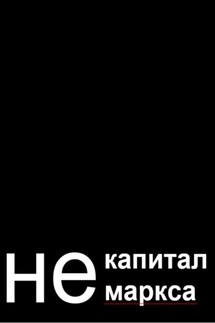The General Theory of Capital: Self-Reproduction of Humans Through Increasing Meanings - страница 38
Free will is the human ability to create random options at the intersection of necessities—natural and socio-cultural programs—and to choose from the options. Without accurate data on the spans of the bridge connecting primates and humans, we cannot say at what exact moment the “voices” in a person’s head became the voice of his own mind. But we can say with some confidence that the human mind is the result of the interaction of three forces: primary emotions, meanings, and random but remembered choices. The mind is not a program, but an evolutionary process, it is not reducible to instincts and learning. “…Culture is not equatable directly to the environment or econiche. … The human brain is a selectional system, not an instructional one” (Edelman 2006, p. 55). The changes in animals depend mainly on changes in environmental conditions and genes. The changes in humans depend not only on the environment, but also on the human mind and the (counter)facts it creates. Freedom consists, for example, in the ability to choose between meanings that are detrimental to one’s own chances of survival and the chances of survival of one’s species. “The habit of celibacy is presumably not inherited genetically” (Dawkins 1976, p. 213).
Mutual evolutionary selection of subjects and meanings occurs when people choose between strategies. Choosing here means not only making a decision but also implementing it. Competition of meanings occurs in choosing between them, and competition of people occurs in action, i.e. in implementing chosen strategies. In the marshmallow experiment, children were given the choice of eating one candy immediately—or two, but only after waiting 15 minutes. The child chose a strategy—eat one candy or wait for two—and the strategy chose the child. A survey conducted 20 to 30 years later found that those who could wait until the second candy as children were more successful as adults.
However, as we saw above, the fate of the Franklin expedition shows the limitations of the minds of people of the industrial age compared to the cultural experience of hunter-gatherers, accumulated by many generations of people and meanings. Rational strategies of individuals lose out to simple learning algorithms. Algorithms of socio-cultural self-reproduction do not imply individual decision-making, but a whole evolutionary process of division, addition, multiplication, complication and increase of meanings. The increase of meanings, including activity, its norms and active power itself, is aimed at overcoming uncertainty.
3. Division, addition and multiplication of meanings
Activity and efficiency
The same action can bring different results depending on the circumstances in which it is performed and the natural and cultural phenomena on which it relies. If the same seed is thrown on a rock or on fertile soil, it can yield two different effects. But the complexity of the result will be the same in both cases. The effect can be the result of chance (as in Robinson Crusoe who threw the seed in a good place) or of necessity revealed by knowledge, that is, in a causal model:
“The archetype of causality research was: where and how must I interfere in order to divert the course of events from the way it would go in the absence of my interference in a direction which better suits my wishes? In this sense man raises the question: who or what is at the bottom of things? He searches for the regularity and the ‘law,’ because he wants to interfere” (Mises 1996, p. 22).







